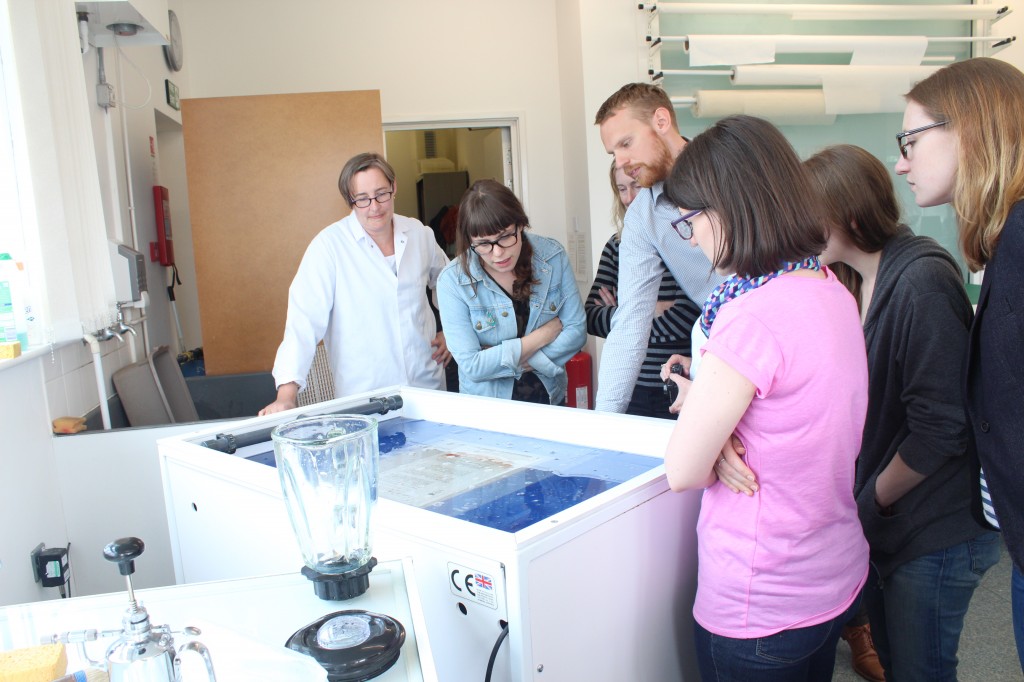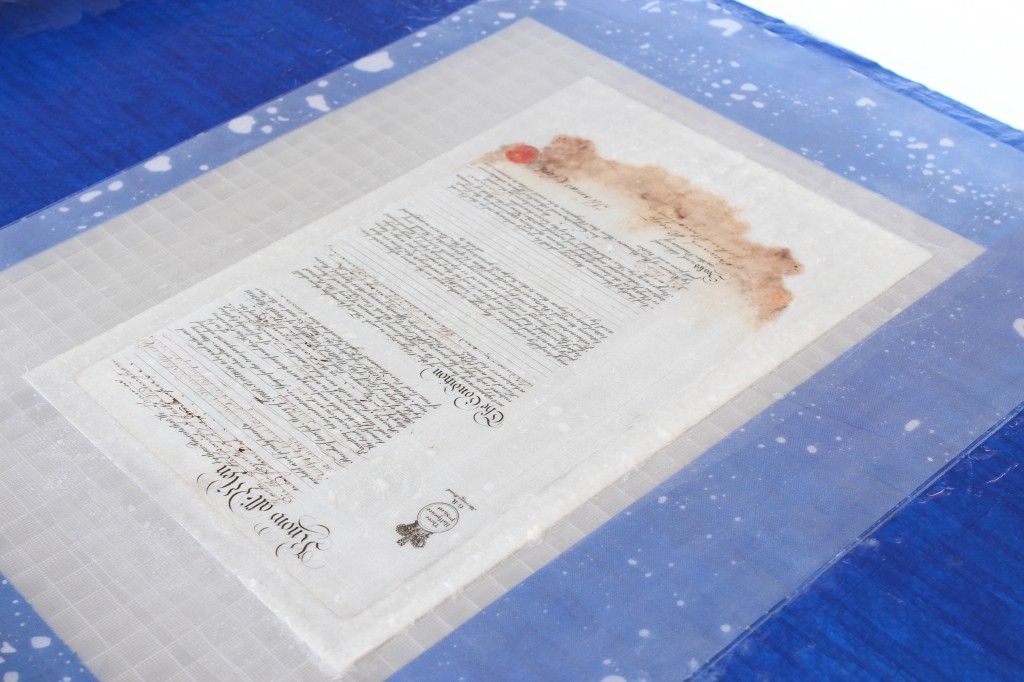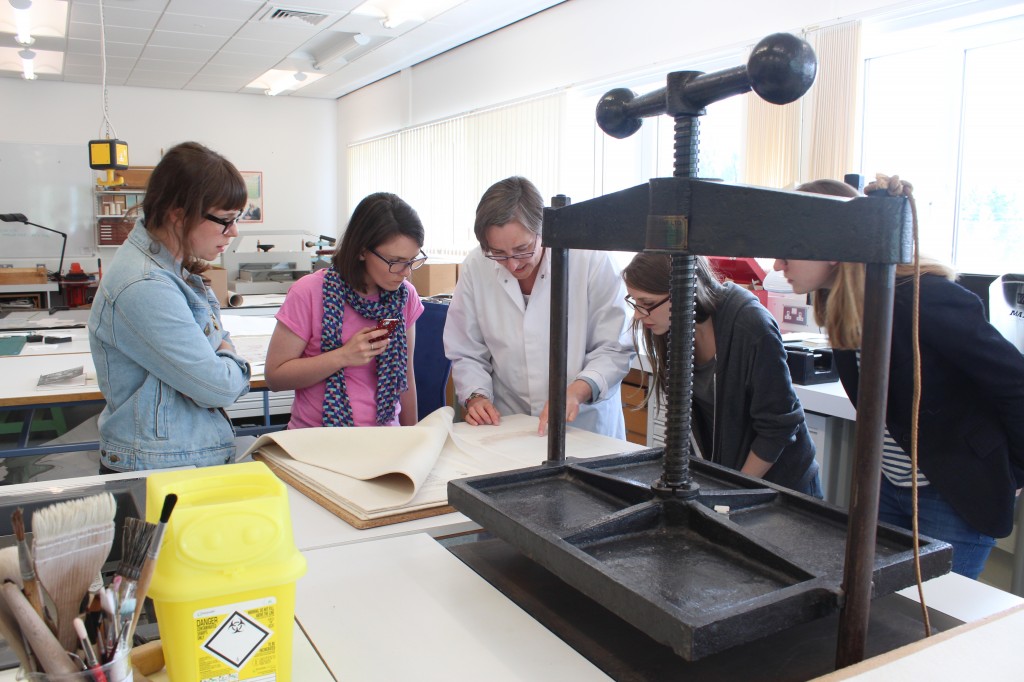Essex Record Office recently hosted a meeting of the Archives and Records Association (ARA) Conservation Training Scheme with Trainees coming from other Offices as far away as Lancashire, Pembrokeshire and Derbyshire. The scheme aims to train Archive Conservators to be able to preserve and repair the extremely varied material found in a county record office, dealing with the theoretical knowledge of the history and science behind the materials and the practical skills required to preserve historic documents for the future.
Following a tour of the building and facilities at ERO, Trainees were instructed on the conservation of photographic negatives by Photographic Conservator, Rosalind Bos. During this session Rosalind described the types of materials used in the production of negatives and the conservation challenges caused by unstable plastic negatives. Methods for the conservation of damaged glass plates negatives were demonstrated including the sandwiching of a broken negative between two glass plates with a tight border of mount board to provide pressure on the pieces and keep them in place. A negative repaired like this can be safely stored, handled and digitised without causing further harm.
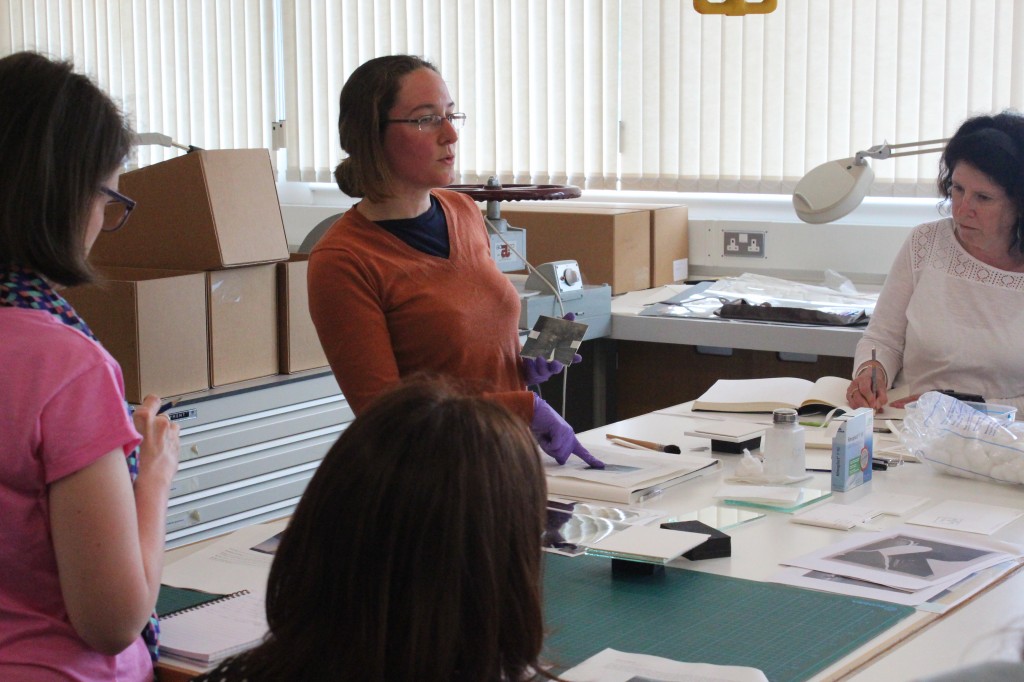
Conservator Rosalind Bos talks to Trainee Conservators on techniques used in photographic conservation
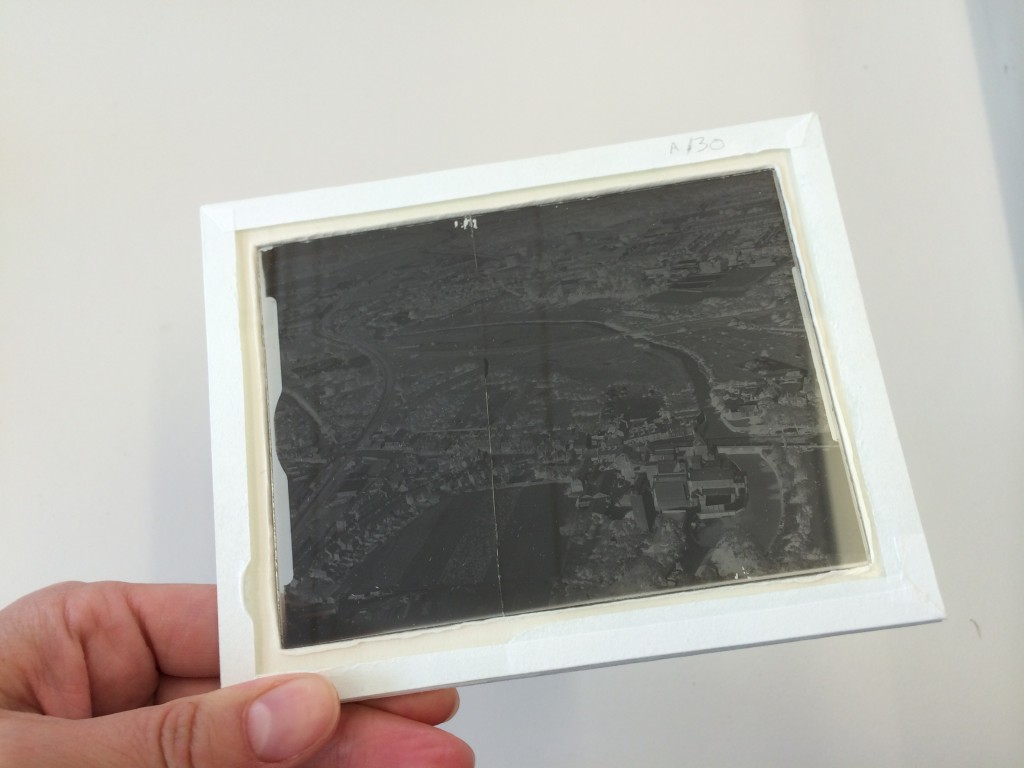
A broken photographic negative sandwiched between glass and held in place by a specially made border
ERO’s Conservation staff, Tony King and Diane Taylor, ran a session on the technique of leafcasting in the afternoon. Leafcasting is a method by which paper documents with weakened areas, tears and holes can be repaired using liquid paper pulp. The document is held underwater positioned on a fine mesh and the liquid pulp is added to the water. Once a vacuum is turned on the water rushes through the mesh depositing the pulp in the holes in the document, once pressed and dried the pulp forms new paper in the holes. You can see how this process works in our leafcasting video here.
The day gave the Trainees a chance to learn about several specialist conservation techniques as carried out by staff at ERO and was a great opportunity to share ideas and approaches with colleagues from all over the country.

